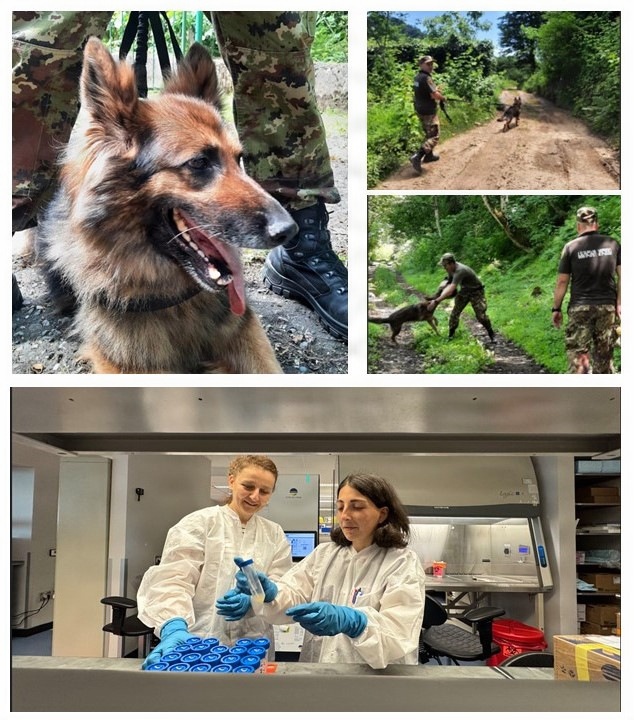
In a strategic first-time effort, the Walter Reed Army Institute of Research – Europe and Middle East (WRAIR-EME), in partnership with the Ministry of Internal Affairs – Border Police Canine Services of Georgia (MIA-BP), launched targeted antimicrobial resistance (AMR) surveillance in working dogs deployed along the Georgian-Turkish border. Conducted in June 2025 in the mountainous Adjara region, this mission-critical field effort focused on detecting multidrug-resistant (MDR) ESKAPE-E + SP (Staphylococcus pseudintermedius) pathogens, which are bacteria known to pose significant threats to both public and military health. Approximately 15% of isolates were found to be MDR, underscoring the sentinel role of these dogs in identifying emerging biological threats.
This initiative reflects the growing role of biosurveillance in supporting Force Health Protection (FHP). Because working dogs live and operate in close proximity to military personnel, early detection of AMR threats reduces the risk of zoonotic transmission, informs clinical decision-making, and safeguards operational readiness of both personnel and animals. Building on the success of this operation, WRAIR-EME plans to expand AMR surveillance capabilities across the EUCOM area of responsibility, further strengthening collaboration with regional defense health systems.
| Date Taken: | 06.25.2025 |
| Date Posted: | 11.14.2025 11:06 |
| Photo ID: | 9380863 |
| VIRIN: | 250626-A-A1902-1001 |
| Resolution: | 634x720 |
| Size: | 184.41 KB |
| Location: | GE |
| Web Views: | 31 |
| Downloads: | 1 |

This work, AMR Surveillance in Border Patrol Dogs: A One Health Collaboration at the Georgian-Turkish Frontier [Image 12 of 12], by CPT Daniel Kankam, identified by DVIDS, must comply with the restrictions shown on https://www.dvidshub.net/about/copyright.